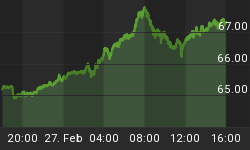While Aramco is signaling that the preparation for its long-awaited IPO is still underway, another big oil company may soon go private. Canada’s Husky Energy has suffered a more than 80-percent drop in its share price in the past decade, according to Bloomberg calculations, and analysts do not believe the outlook is particularly good if it remains a public company.
Oil price fluctuations, the fallout from the 2008 crisis, production cuts, and a failed takeover bid for MEG Energy are some of the reasons why Husky’s stock has lost so much of its value since 2008. For the majority shareholder in the company, a firm controlled by Hong Kong billionaire Li Ka-shing, this has meant a loss of as much as US$20 billion (C$26.5 billion). Li’s firm has a 69-percent stake in the company.
This, according to RBC Capital Markets analyst Greg Pardy, makes Husky a good candidate for going private. BNN Bloomberg quotes Pardy as saying in a note to clients “If ever there was a time for Husky to consider going private, we believe it is now.” The analyst noted that going private would make Husky more flexible “to differentiate its strategic direction and tactics as need be without public market scrutiny.”
Going private would not be a solution for all of the company’s problems, however, Pardy said. It would close the door to cash-raising through stock offerings, for example, and thus hurt its chances of growing through mergers and acquisitions. It would also make it tough for the majority shareholder to meet the debt obligations that will be maturing in the coming years.
Yet a privatization would, according to Pardy, help it “capture the gap” between its current share price and its net asset value, which the analyst calculates at a much higher level than its current stock price. Related: Africa’s First Unicorn IPO Is Coming To The NYSE
Husky has some pretty attractive assets, including a natural gas field in the South China Sea along with its oil sands operations and its refining business in the United States. Its last financial statement beat expectations in the net profit section, too. Admittedly, this came largely on the back of higher oil prices resulting from the obligatory cuts instituted by the NDP government of Alberta and upheld by the new Conservative government. Still, a better-than-expected profit is good news.
On the bad news front, Husky also reported negative cash flow for the second quarter of the year and an increase in debt. The first-half free cash flow figure was positive but much lower than the figure for the first half of 2018.
“The beauty contest for energy producers these days revolves around free cash flow generation and distributions to shareholders … Admittedly, Husky is not a great fit in this world,” Pardy said in his note. Indeed, free cash flow has become the focus of attention for investors in the energy industry after the price crash of 2014 and few companies are delivering robustly on this metric.
It seems Husky is not particularly attractive for investors right now. Whether going public could help it improve its performance is uncertain, but it may increase its chances. The fact that its share jumped more than 5 percent following the release of Pardy’s note earlier this week suggests that privatization could be a good move.
By Irina Slav for Oilprice.com
















